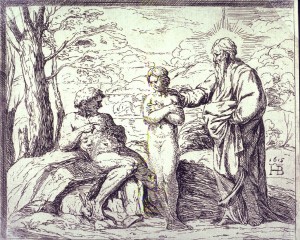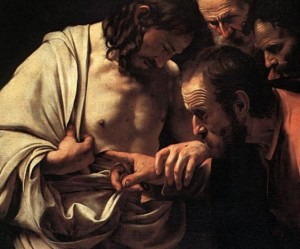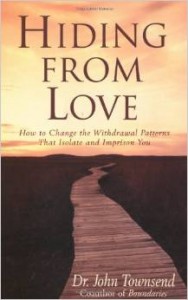Too often we label things for convenience and it ends up undermining impact. I think that is true of different books and chapters in our English Language Bibles. We categorize I Cor. 13 as the love chapter and Rom. 12:1-2 as the commitment verses when just the opposite could be true.
While 1 Corinthians 13 is more like an argumentative essay convincing us that love is the best approach in matters of faith and community. “If I speak in the tongues of men and of angels, but have not love, I am a noisy gong or a clanging cymbal. And if I have prophetic powers, and understand all mysteries and all knowledge, and if I have all faith, so as to remove mountains, but have not love, I am nothing. If I give away all I have, and if I deliver up my body to be burned, but have not love, I gain nothing.
Love is patient and kind; love does not envy or boast; it is not arrogant or rude. It does not insist on its own way; it is not irritable or resentful; it does not rejoice at wrongdoing, but rejoices with the truth. Love bears all things, believes all things, hopes all things, endures all things.”
I can’t remember if I’ve ever tried to decide between love and speaking in tongues or prophesying, but I’m sure I’ve chosen selfishness over loving many times. Upon closer examination, I’m surprised at how much play chapter 13 has received over the years as the headline on godly love. Truly, it uses such “insider” language about technical church business that I would’ve thought it a distraction to non-church folk. I guess those simple adjectives in verse 4 are a strong enough catch phrase that they carried the rest of the chapter into their wake.
Meanwhile, Romans 12 is much more about how we actually “do love” and put it into practice once we decide it’s a good idea. I can’t tell you how many times I’ve memorized verses 1-2 of this chapter and thought there was nothing else important in this chapter. I thought it was about “renewing my mind” and thinking more “Christianly” about social, political and marketplace issues. I’m embarrassed, as I’ve realized that I’ve been missing such practical and life-giving teaching available for the Holy Spirit and I’ve been skipping right over it. It’s about the transformation that occurs as the Spirit transforms our minds AND hearts. I’m not saying that chapter titles are evil, but they’re not inspired. And it is not surprising that the new Bibliotheca project looks like a success. It reminded me of doing manuscript Bible study where there were no chapter and verse delineations. And certainly there were no book or chapter titles!
Read these words from Romans 12, “I appeal to you therefore, brothers, by the mercies of God, to present your bodies as a living sacrifice, holy and acceptable to God, which is your spiritual worship. Do not be conformed to this world, but be transformed by the renewal of your mind, that by testing you may discern what is the will of God, what is good and acceptable and perfect.
For by the grace given to me I say to everyone among you not to think of himself more highly than he ought to think, but to think with sober judgment, each according to the measure of faith that God has assigned. For as in one body we have many members, and the members do not all have the same function, so we, though many, are one body in Christ, and individually members one of another. Having gifts that differ according to the grace given to us, let us use them: if prophecy, in proportion to our faith; if service, in our serving; the one who teaches, in his teaching; the one who exhorts, in his exhortation; the one who contributes, in generosity; the one who leads,with zeal; the one who does acts of mercy, with cheerfulness.
Let love be genuine. Abhor what is evil; hold fast to what is good. Love one another with brotherly affection. Outdo one another in showing honor. Do not be slothful in zeal, be fervent in spirit, serve the Lord. Rejoice in hope, be patient in tribulation, be constant in prayer. Contribute to the needs of the saints and seek to show hospitality.
Bless those who persecute you; bless and do not curse them. Rejoice with those who rejoice, weep with those who weep. Live in harmony with one another. Do not be haughty, but associate with the lowly. Never be wise in your own sight. Repay no one evil for evil, but give thought to do what is honorable in the sight of all. If possible, so far as it depends on you, live peaceably with all. Beloved, never avenge yourselves, but leave it to the wrath of God, for it is written, “Vengeance is mine, I will repay, says the Lord.” To the contrary, “if your enemy is hungry, feed him; if he is thirsty, give him something to drink; for by so doing you will heap burning coals on his head.” Do not be overcome by evil, but overcome evil with good.” (ESV)
I’m just thankful that on a recent morning when I had nothing to read during a coffee break that I pulled out my iPhone version of the Bible and read Romans 12 and was captivated by the words of truth that I could live by today. “Weep with those who weep…, Do not be haughty, but associate with the lowly.” Sound like Jesus. Sounds like love.


 od. We live because of God’s actions. This changes the question from, “how do I live for the glory of God?” to “how do I live who I am and who I was created as?”
od. We live because of God’s actions. This changes the question from, “how do I live for the glory of God?” to “how do I live who I am and who I was created as?”


